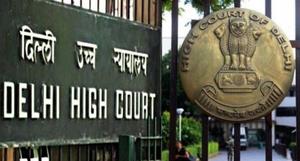Delhi HC Stresses On Need For Uniform Civil Code
“Is it not the time to move towards a Uniform Civil Code (UCC), ensuring a single framework where personal or customary law does not override national legislation? [T]he Legislature must decide whether to continue criminalising entire communities or to promote peace and harmony through legal certainty,” observed a single-judge Bench of Justice Arun Monga, while granting bail to a 24-year-old man accused of marrying a minor under Muslim personal law.
The prosecutrix herself supported her husband and opposed his prosecution, but official documents indicated she was only 14 at the time of marriage.
Under Islamic law, puberty (presumed at 15) is considered sufficient to contract a valid marriage. However, under the penal laws like the Protection of Children from Sexual Offences (POCSO) Act and Bharatiya Nyaya Sanhita (BNS), any sexual relationship with a person below 18 is treated as statutory rape.
“This recurring conflict is clear – under Islamic law, a minor girl attaining puberty may lawfully marry, but under Indian criminal law, such a marriage renders the husband an offender under the BNS and/or POCSO or both,” Justice Monga observed.
It added that this raises a stark dilemma: should an entire community be criminalised for adhering to long-standing personal laws? The judgment acknowledged that opponents of the UCC caution against uniformity, saying that it risks eroding the religious freedom guaranteed under the Constitution. However, Justice Monga highlighted that freedom of religion cannot extend to practices that run afoul of laws designed to protect children and vulnerable individuals.
“A pragmatic middle path could be to standardise core protections, such as prohibiting child marriages across the board with penal consequences, as they directly conflict with both BNS and POCSO. At the same time, less contentious personal matters may be allowed to evolve gradually within respective communities,” the judgement suggested.
Before arriving at a decision, Justice Monga heard extensive arguments from experts in Islamic law, including Prof. Faizan Mustafa, Vice Chancellor of Chanakya National Law University, and academics from Jamia Millia Islamia and Woxsen University. The observations come amid long-standing debates on Article 44 of the Constitution, which directs the State to endeavour towards a UCC.

Legal Disclaimer:
MENAFN provides the
information “as is” without warranty of any kind. We do not accept
any responsibility or liability for the accuracy, content, images,
videos, licenses, completeness, legality, or reliability of the information
contained in this article. If you have any complaints or copyright
issues related to this article, kindly contact the provider above.
Most popular stories
Market Research

- Alchemy Markets Launches Tradingview Integration For Direct Chart-Based Trading
- Next Generation Management Corp. (OTC: NGMC) Announces Strategic Shift Toward Digital Commerce Acquisitions
- Falconx Launches First Ethereum Staking Rate Forwards (Fras) Referencing Treehouse's TESR
- Everstake Expands Institutional Solana Services With Shredstream, Swqos, And Validator-As-A-Service
- T-REX Launches Intelligence Layer To Fix Web3's Value Distribution Problem
- Ethereum-Based Defi Crypto Mutuum Finance (MUTM) Raises Over $16 Million With More Than 720M Tokens Sold






















Comments
No comment